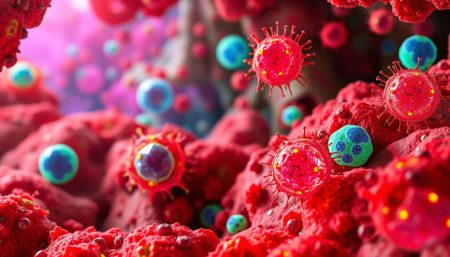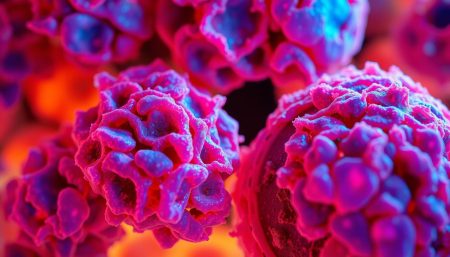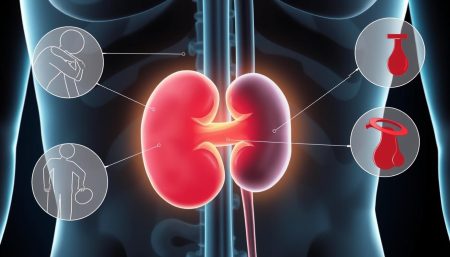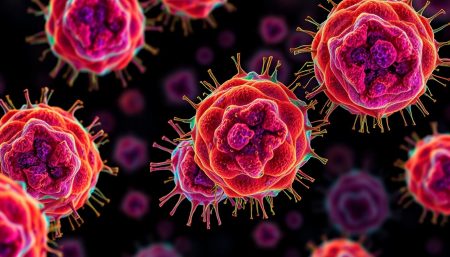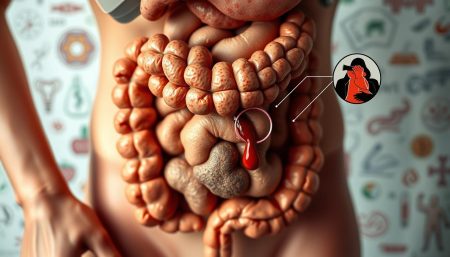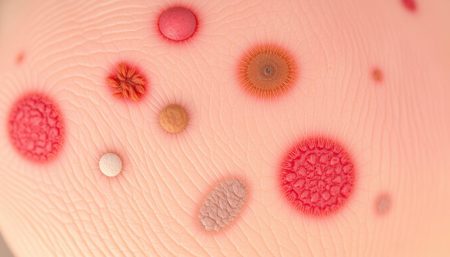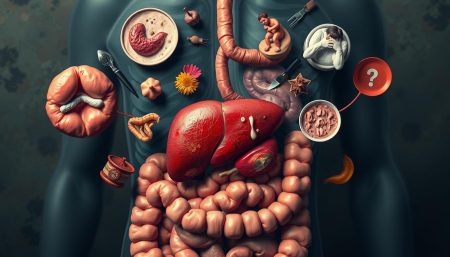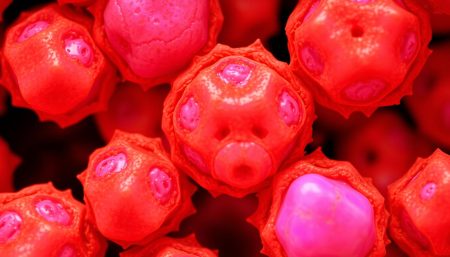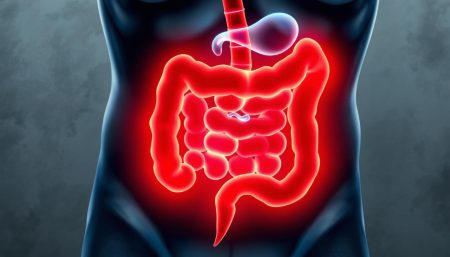What's Hot
- Understanding Metastatic Cancer and Treatment Options
- Understanding Lymphoma Cancer: Symptoms & Treatment
- Don Omar Cancer: Updates on Reggaeton Star’s Health
- Inflammatory Breast Cancer: Causes and Warning Signs
- Early Signs and Kidney Cancer Symptoms to Watch For
- Understanding Sarcoma Cancer: Types and Treatment Options
- Early Signs and Thyroid Cancer Symptoms to Watch For
- Early Signs and Symptoms of Colon Cancer to Know
Cancer
Metastatic cancer, also known as advanced cancer or stage IV cancer, is a tough challenge. It happens when cancer cells spread to other parts of the body. This creates new tumors. We will look into how cancer spreads and the…
Lymphoma cancer is a complex blood disorder that affects the lymphatic system. This system is key to our body’s defense against illness. This guide will help you understand lymphoma, including its two main types: Hodgkin’s lymphoma and non-Hodgkin’s lymphoma. We’ll…
The music world was shocked when Don Omar was diagnosed with cancer. Fans and fellow musicians are all talking about his health. This news has made everyone wonder about Don Omar’s future in music. As more information comes out about…
Inflammatory breast cancer is a rare but aggressive form of breast cancer. It’s important to be aware of it because it often goes unnoticed by traditional screening methods. This makes early detection key. This type of cancer can grow quickly,…
Kidney cancer often hides quietly, making it important to know its early signs. Spotting these symptoms early can lead to quick treatment. Look out for blood in urine and persistent back pain, as they are warning signs. This guide will…
Sarcoma cancer is a rare and complex group of malignancies. It affects soft tissues and bones. This disease needs special attention from oncology specialists because of its unique characteristics and treatment approaches. Our journey through sarcoma cancer will provide valuable…
Spotting thyroid cancer symptoms early is key to better treatment. This gland in your neck is vital for your body’s functions. If it’s not working right, it will send out signals. Neck swelling is a common sign. You might see…
Early Signs and Symptoms of Colon Cancer to Know
Spotting the signs of colon cancer early is key to getting treatment fast. Colorectal cancer often grows quietly, so it’s vital to notice small changes in your body. This guide will cover the main warning signs of digestive cancer. Changes…
Skin cancer is a serious condition that affects millions of Americans each year. Knowing the early warning signs can greatly improve treatment outcomes. This guide will help you understand key skin cancer symptoms and why early detection is important. It’s…
Liver cancer can sneak up on you, often without early symptoms. Knowing the warning signs is key to catching it early. Signs like abdominal pain or weight loss without trying can save your life. This article will teach you about…
Bladder cancer affects thousands of Americans each year. This guide sheds light on the key aspects of this disease. We’ll cover its early warning signs and the latest treatment options. Recognizing symptoms like hematuria (blood in urine) can lead to…
Colorectal cancer symptoms can be hard to spot, making it key to catch them early. Knowing the signs could save your life. This disease often hides until it’s too late, but finding symptoms early can greatly improve your chances. Look…
Cancer
Cancer is a major health concern worldwide. It’s a disease where malignant cells grow too much. Knowing about cancer can save lives.
It’s important to find cancer early and spread awareness. This helps people survive and manage the disease better. Research is key to finding new treatments and giving hope to those affected.
Understanding cancer is an ongoing journey. With more cancer research, we can improve diagnosis and treatment. Knowledge is as powerful as the treatments themselves.
What is Cancer? Definitions and Types
Understanding cancer starts with knowing about malignant cells. These cells grow out of control, unlike normal cells. This can harm the body and affect many functions.
Defining Cancer and Malignant Cells
Cancer is when abnormal cells grow without control. These cells can spread to other parts of the body. This is called metastasis. It’s what makes malignant tumors different from benign ones.
The Various Forms of Cancer and Common Types
There are over 100 types of cancer. They include carcinoma, melanoma, sarcoma, and lymphoma and leukemia. Each type affects different parts of the body. This shows why treatments must vary.
Recognizing Benign vs. Malignant Tumors
It’s key to know the difference between benign and malignant tumors. Benign tumors grow slowly and stay in one place. Malignant tumors grow fast and can spread to other organs. Knowing this helps doctors choose the right treatment.
Cancer Diagnosis and Staging
The journey to fight cancer starts with a quick and accurate cancer diagnosis. This key step in oncology uses the latest medical tech and expert opinions. Doctors use tests like blood work, imaging, and biopsies to find cancer cells.
After finding cancer, the focus shifts to cancer staging. This step shows how far cancer has spread in the body. It’s crucial for creating a treatment plan that fits each patient. Staging uses scans and sometimes surgery to measure tumors.
Getting a cancer diagnosis is very hard for patients and their families. That’s why support and clear talk are so important. Doctors in oncology do more than treat cancer. They also offer emotional support and help during treatment.
Cancer Treatments: Traditional and Emerging Methods
The way we treat cancer has changed a lot. Old methods like chemotherapy are still important, but now they’re better and safer. New ideas like personalized medicine are making treatments fit each person’s needs. We look at how we fight cancer today, from old ways to new ones.
Chemotherapy: How It Works and What to Expect
Chemotherapy is a key part of fighting cancer. It kills cancer cells fast. But, it can also make people feel very tired or have other serious side effects. Doctors are working to make chemotherapy better, so it hurts less and works better.
Radiation Therapy: The Science and Its Use
Radiation therapy uses high-energy waves to kill cancer cells. New technology makes it more precise, so it hits the tumor but not the healthy tissue. This shows how modern medicine aims to be both effective and gentle.
Innovative Cancer Treatments in Modern Oncology
New treatments are changing cancer care a lot. Gene editing, targeted therapy, and nanotechnology are some of these advances. They help make treatments more personal and less harsh.
Immunotherapy and Personalized Medicine in Cancer Treatment
Immunotherapy helps the body fight cancer itself. It’s a big step towards personalized medicine. This approach makes treatments fit each person’s genes, aiming for better survival and quality of life. Personalized medicine offers hope for everyone fighting cancer.
FAQ
Q: What exactly is cancer?
A: Cancer is a disease where cells grow out of control. These cells can spread to other parts of the body. Unlike normal cells, cancer cells keep growing and can harm healthy tissue.
Q: How do cancer cells differ from normal cells?
A: Cancer cells grow without stop signals and avoid death signals. They can trick the body into giving them nutrients. They can also spread to other organs.
Q: Why is cancer awareness important?
A: Knowing about cancer helps find it early. This can lead to better treatment and survival chances. Awareness also helps fund research for new treatments.
Q: What are the most common types of cancer?
A: Common cancers include breast, lung, prostate, colorectal, and skin cancer. But there are over 100 types of cancer.
Q: How can I tell the difference between a benign and malignant tumor?
A: Benign tumors are noncancerous and don’t spread. Malignant tumors are cancerous and can spread. Benign tumors grow slowly, while malignant tumors grow fast.
Q: What is involved in a cancer diagnosis?
A: Diagnosing cancer involves medical history, physical exams, and tests like CT scans and MRIs. Blood tests and biopsies are also used. These help confirm cancer and its type.
Q: What does cancer staging mean?
A: Staging describes the cancer’s size and spread. It helps doctors plan treatment and predict outcomes. Stages range from 0 to 4, with higher numbers indicating more advanced cancer.
Q: How does chemotherapy work?
A: Chemotherapy kills fast-growing cells, like cancer cells. It can be given orally or through an IV. It can harm healthy cells too, causing side effects.
Q: What is radiation therapy and how is it used in cancer treatment?
A: Radiation therapy kills cancer cells with high doses of radiation. It damages DNA in cancer cells, stopping them from reproducing. It can be given externally or internally.
Q: What are some of the emerging treatments in modern oncology?
A: New treatments include targeted therapy and immunotherapy. Targeted therapy attacks cancer cells specifically. Immunotherapy boosts the body’s immune system to fight cancer.
Q: How does personalized medicine impact cancer treatment?
A: Personalized medicine tailors treatment to an individual’s cancer. It uses genetic information to find the most effective treatments. This can lead to better results with fewer side effects.
Q: Can lifestyle choices affect cancer risk?
A: Yes, lifestyle choices can impact cancer risk. Smoking, alcohol, unhealthy diet, and lack of exercise increase risk. Healthy habits like a balanced diet and exercise can lower risk.
Q: What can be done to prevent cancer?
A: Preventing cancer involves making healthy lifestyle choices. Quit smoking, eat well, stay active, and protect your skin. Screenings and vaccines, like the HPV vaccine, can also help prevent cancer.












